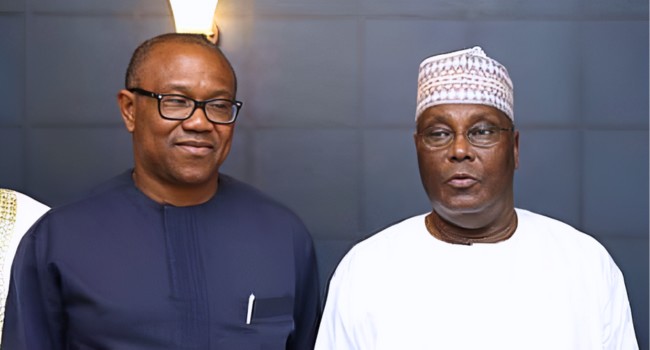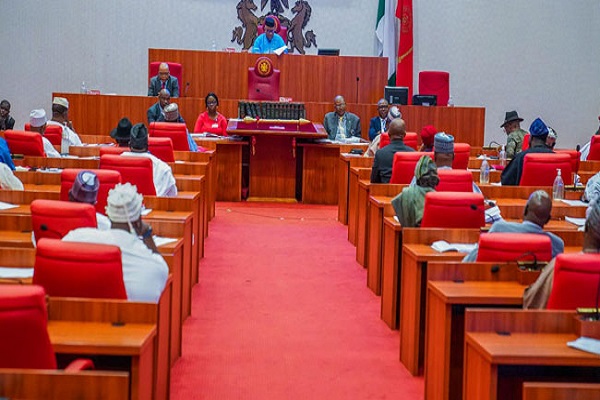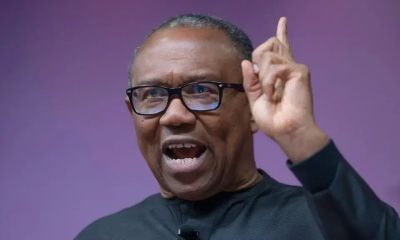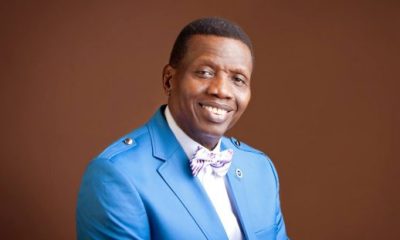News
Robert Clarke: Atiku, Obi’s Lawyers Didn’t Display Professionalism

The senior lawyer said he would not even permit a junior member of his chamber to bring such a brief before the Supreme Court.
A Senior Advocate of Nigeria (SAN), Robert Clarke, says the lawyers of Atiku Abubakar and Peter Obi did not demonstrate professionalism in challenging President Bola Tinubu’s victory in the 2023 election.
“I am not saying they (Atiku, Obi’s lawyers) fumbled the case; what I am saying is that they have not displayed a good sense of legal practice,” the legal luminary said on Thursday’s edition of Channels Television’s Politics Today.
The senior lawyer’s comment comes hours after the Supreme Court upheld the victory of Tinubu in the February 25 presidential election.
The apex court, in its ruling, dismissed the appeals by Atiku, the presidential candidate of the Peoples Democratic Party (PDP); and his Labour Party (LP) counterpart, Obi.
A seven-judge panel dismissed the opposition’s appeals over claims of fraud, electoral law violations, and Tinubu’s ineligibility to run for president.
The apex court thrashed all the grounds of appeal of Atiku and the PDP on qualification, non-compliance with the Electoral Act, the 25% votes in FCT, and electoral malpractices.
Commenting on the ruling of the apex court, Clarke said there was a lack of due diligence in the appeals, pointing out that the legal representation of Atiku and Obi could have been better.
The senior lawyer said he would not even permit a junior member of his chamber to bring such a brief before the Supreme Court.
“Where the law is not allowed to put its heads up in a proceeding, it means that there is another law which prohibits their lawyers to have brought such. They know it, they still decided — either to please their supporters and allow such a matter to come before the Supreme Court,” he said.
“I will not allow any junior in my chambers, even one or two years old to carry such a brief to go and argue in court when I have looked into all the facts and the facts are very clear. There is a limitation of time in election matters. You cannot do certain things.”
Clarke said Obi and Atiku’s lawyers had the chance to present their evidence at a lower court but they did not.
“They had the opportunity as a pre-election matter but they never brought it out. They had the opportunity as a matter within a tribunal’s case but they never brought it. They are now coming and bringing matters that should have been argued in the lower tribunal and the Supreme Court will now be reviewing such evidence as an appellate matter and not as an original jurisdictional matter.”
“I am not blaming the lawyers; that is the last thing I would do, but I am sorry to say that the lawyers, with due respect to them, should have done a better job in this regard.
“As the Supreme Court said, if you have facts that were available before the trial started and you did not bring them into the trial court…
Therefore, if you intend to use any evidence in the Supreme Court, you must have ensured that such evidence must have passed through the original jurisdiction of the lower court,” he said.
Headline
Prince Harry visits sick Nigerian soldiers in Kaduna

Prince Harry and his team visited the 44 Nigerian Army Reference Hospital in Kaduna to interact with wounded soldiers who are receiving treatment.
The Duke of Sussex is in Nigeria with his wife to champion the Invictus Games, which Harry founded to aid the rehabilitation of wounded and sick servicemembers and veterans.
Nigeria joined the Invictus Community of Nations in 2022 becoming the first African country to join.
Prince Harry’s visit to Kaduna came 68 years after his late grandmother Queen Elizabeth II visited the state during the time of the late Premier of Northern Region Sir Ahmadu Bello.




News
Senate approves death penalty for drug traffickers

Senate on Thursday, May 9, approved the death penalty for those convicted on the charge of drug trafficking in the country.
The punishment prescribed in the extant NDLEA Act is a maximum sentence of life imprisonment.
The resolution of the Senate followed its consideration of a report of the Committees on Judiciary, Human Rights and Legal Matters and Drugs and Narcotics, National Drug Law Enforcement Agency (NDLEA) Act (Amendment) Bill, 2024.
The Chairman of the Committee on Judiciary, Human Rights & Legal Matters presented the report during plenary, Senator Mohammed Monguno (APC-Borno North).
The bill, which passed its third reading, aims to update the list of dangerous drugs, strengthen the operations of the NDLEA, review penalties, and empower the establishment of laboratories.
Section 11 of the current act prescribes that “any person who, without lawful authority; imports, manufactures, produces, processes, plants or grows the drugs popularly known as cocaine, LSD, heroin or any other similar drugs shall be guilty of an offence and liable on conviction to be sentenced to imprisonment for life” was amended to reflect a stiffer penalty of death.
Although the report did not recommend a death penalty for the offence, during consideration, Senator Ali Ndume moved that the life sentence should be upgraded to the death penalty.
During a clause-by-clause consideration of the Bill, Deputy Senate President Barau Jibrin, who presided over the session, put the amendment on the death penalty to a voice vote and ruled that the “ayes” had it.
But Senator Adams Oshiomhole objected to the ruling, saying that the “nays” had it.
He argued that matters of life and death should not be treated hurriedly, but Barau said it was too late, as he failed to call for division immediately after his ruling.
The bill was subsequently read for the third time and passed by the Senate.
-

 Headline5 days ago
Headline5 days agoSuspend cybersecurity levy– Reps to CBN
-

 Business5 days ago
Business5 days agoNigeria needs over $2bn to revive Ajaokuta Steel Plant, says Minister
-

 Headline3 days ago
Headline3 days agoPrince Harry visits sick Nigerian soldiers in Kaduna
-

 Entertainment3 days ago
Entertainment3 days agoAMVCA Cultural Day: BBNaija’s Neo, Venita win Best Dressed Male, Female
-

 Headline5 days ago
Headline5 days agoTinubu resumes work after foreign trip
-

 News5 days ago
News5 days agoShan George’s money returned to Zenith Bank account
-

 Metro3 days ago
Metro3 days agoEx-Sports Minister laments after hospital neglected him for hours over N80000 deposit











